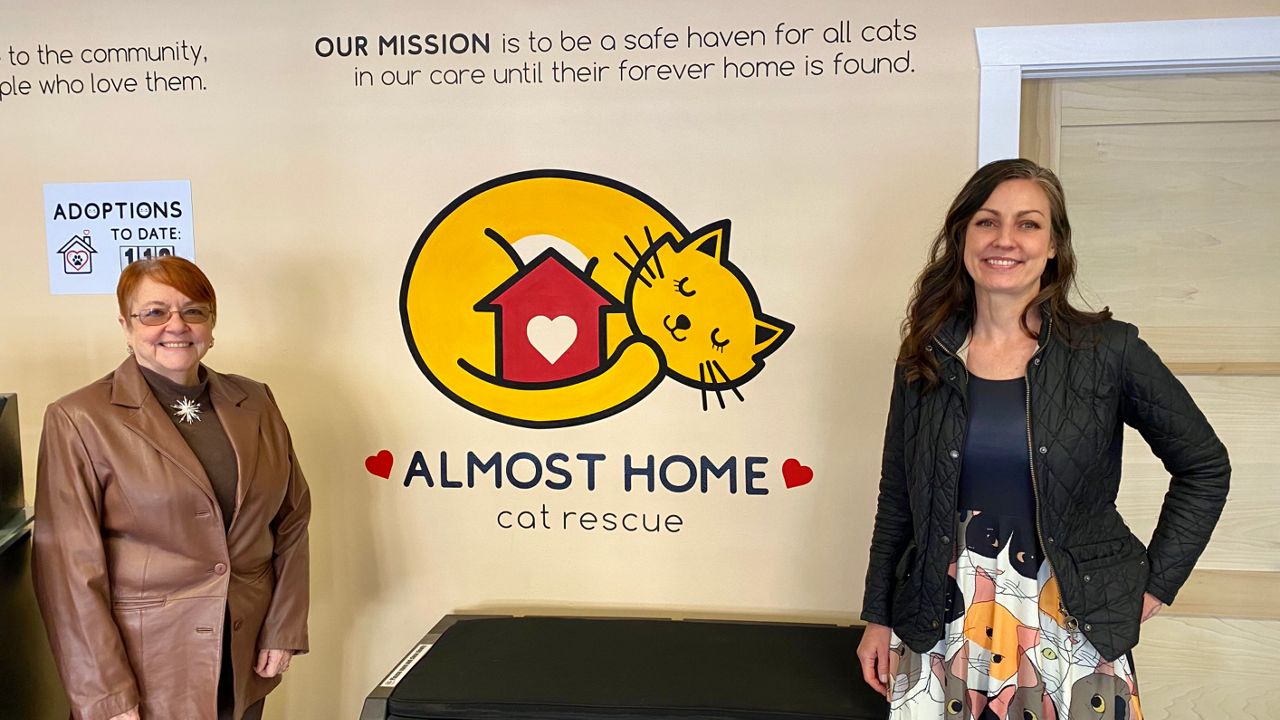MILWAUKEE — Pet adoptions don’t always start under the rosiest of circumstances.
It was 2021. A cat was being put on the euthanasia list at the Humane Animal Welfare Society of Waukesha.
“They said she couldn’t be handled,” said Mel Kleverova Zilliox, an animal welfare officer for Almost Home Cat Rescue MKE in Milwaukee. “She was very vocal and swatty and she didn’t bite, but she lunged.”
Kleverova Zilliox said when Almost Home Cat Rescue MKE took her in, they discovered she had an upper respiratory infection.
“She was almost at the stage of pneumonia and so she was very stressed,” said Kleverova Zilliox.
But after eight months in foster care with Kleverova Zilliox, everything changed.
“She became a little love bug, would sit in my lap, would love to get her chin scratched, but it took a while,” Kleverova Zilliox said.
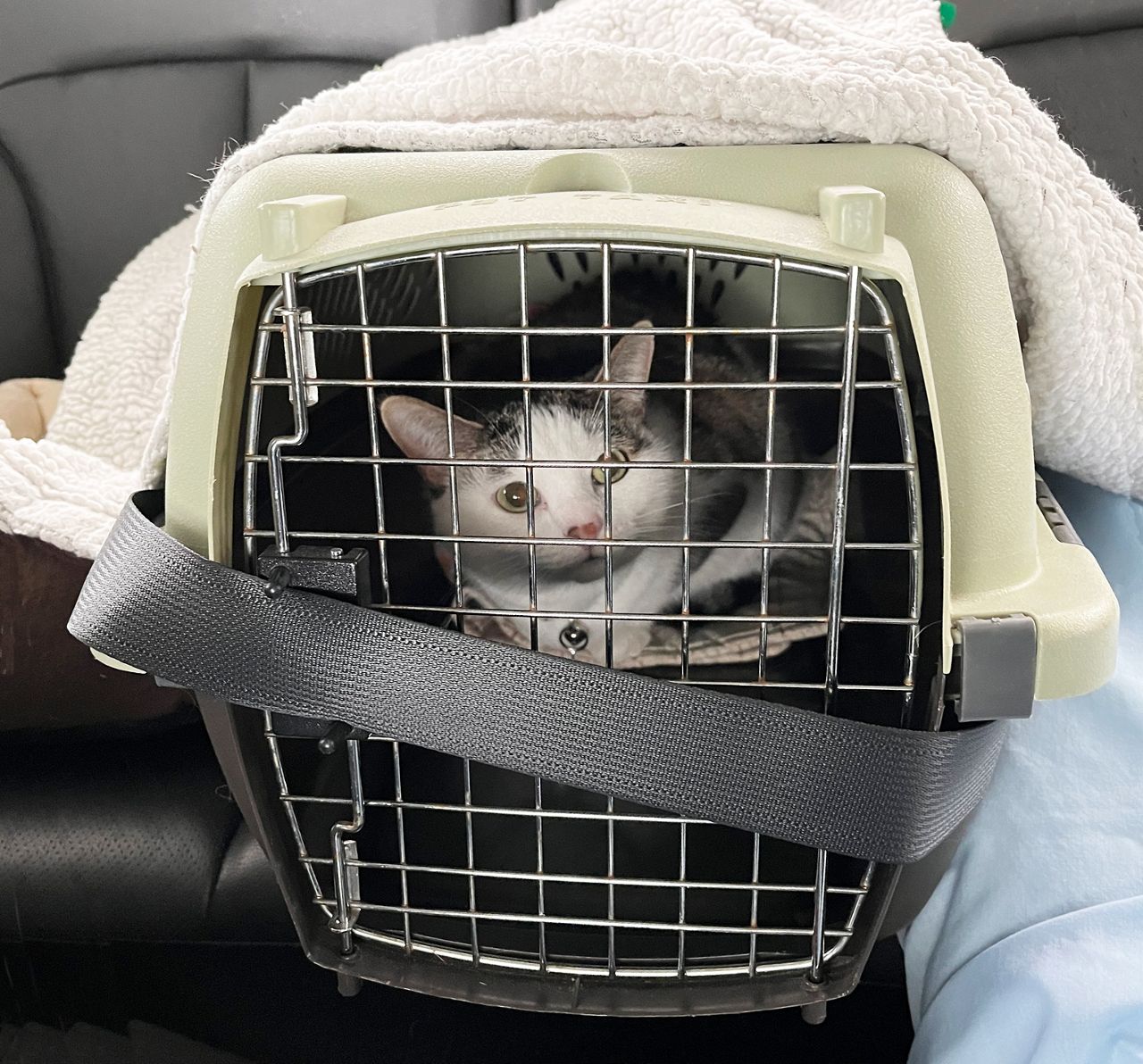
In August, a woman adopted the cat, named Poe, and took her along for one of her road trips, snapping photos she sent to Kleverova Zilliox along the way.
It’s a story that illustrates the heart of what the Almost Home Cat Rescue MKE has been trying to achieve since they first started in 2021 and now, in their new in-person location on Ogden Avenue downtown.
From taking cats off euthanasia lists across the Midwest to serving as a vital resource for the cat community to changing stigmas, it’s a mission people at the volunteer-based shelter are passionate about.
A kitten in a backyard
Nancy Duwe didn’t know what to do when she found a cat trapped in her backyard. She had heard some rumblings of a group starting up their own rescue, so she decided to turn to them.
“I called up... I said, ‘did you guys start up yet?’ And they said, ‘Well, we’re not taking any in’ and I said, ‘Well, I’ve got this kitty in my bathroom. What do I do with her? I don’t want to put her back outside,’” said Duwe.
That’s the moment Duwe said Almost Home first began. After hearing her call, the group decided to start taking in cats. And that cat in Duwe's backyard, named Cricket, became the first rescue for the group.
As president of the shelter, Duwe said she’s been fostering cats ever since.
Many of the cats at Almost Home come from surrenders, or people finding cats in poor condition outdoors, such as in the cold snow. Others come from rescue partners like HAWS.
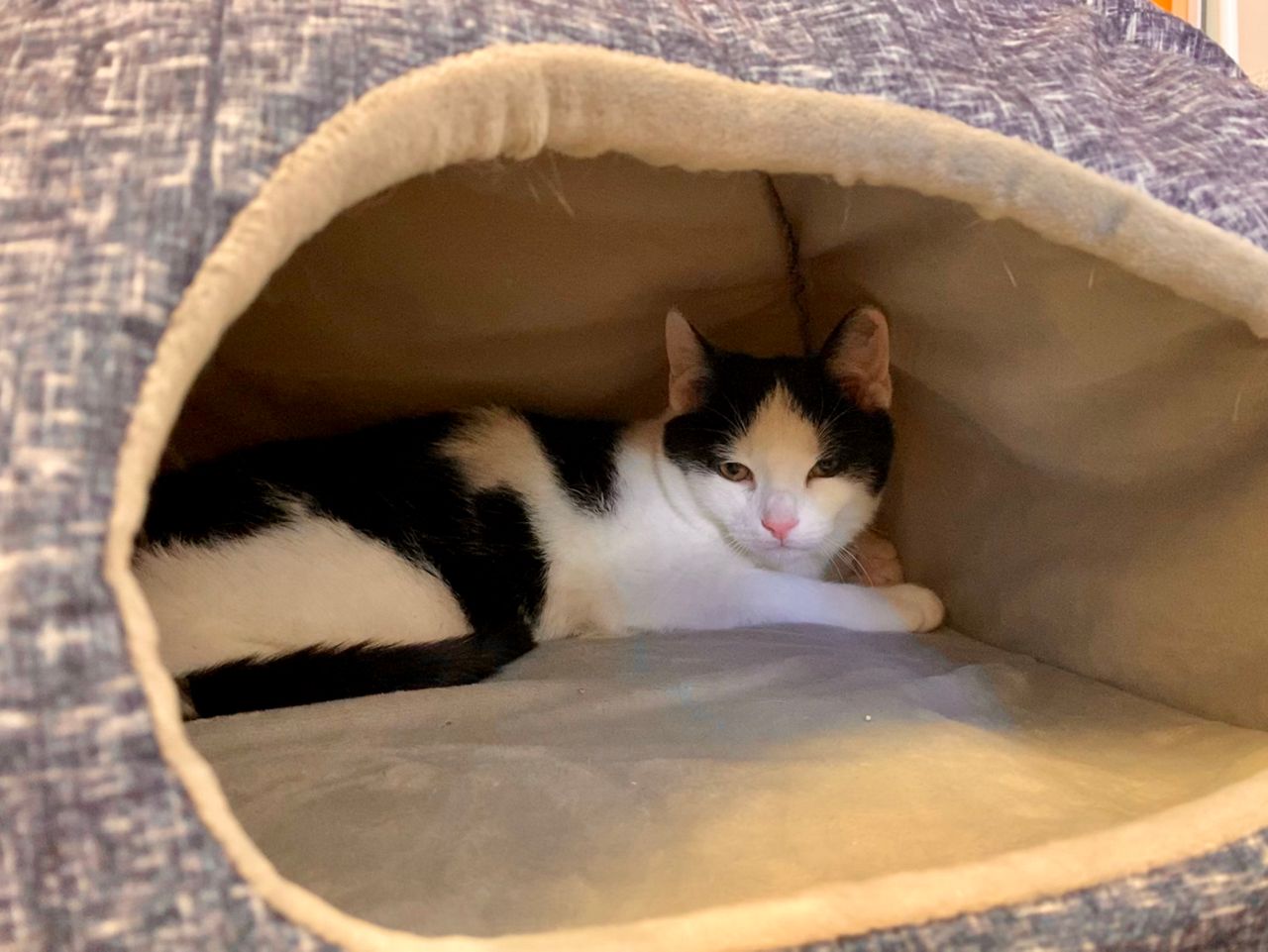
From there, cats go into foster care families associated with Almost Home. When cats are at foster homes, their foster family will work with them to prepare them for adoption.
Before Almost Home opened their physical shelter, adoptions took place at the homes of the foster families. Now, they can take place at the shelter.
Since the nonprofit started, they’ve carried out over 100 adoptions. Duwe said they had seven within one weekend after opening the Milwaukee shelter.
A shelter that doesn’t ‘say no very easily’
Anyone that steps foot into the shelter on the Lower East Side can tell that it’s different. Meditative music plays on the overhead speakers, a TV in the corner displays wildlife scenes, platforms for cats to climb rest on the walls and toys are scattered over the floors.
It’s a picture of how the shelter aims to center the cats and their lives in all they do.
Kleverova Zilliox said the shelter ascribes to the Five Freedoms for animals, which claims that every living being has the right to humane treatment. It’s a set of standards that was developed by the Britain Farm Animal Welfare Council in 1965.
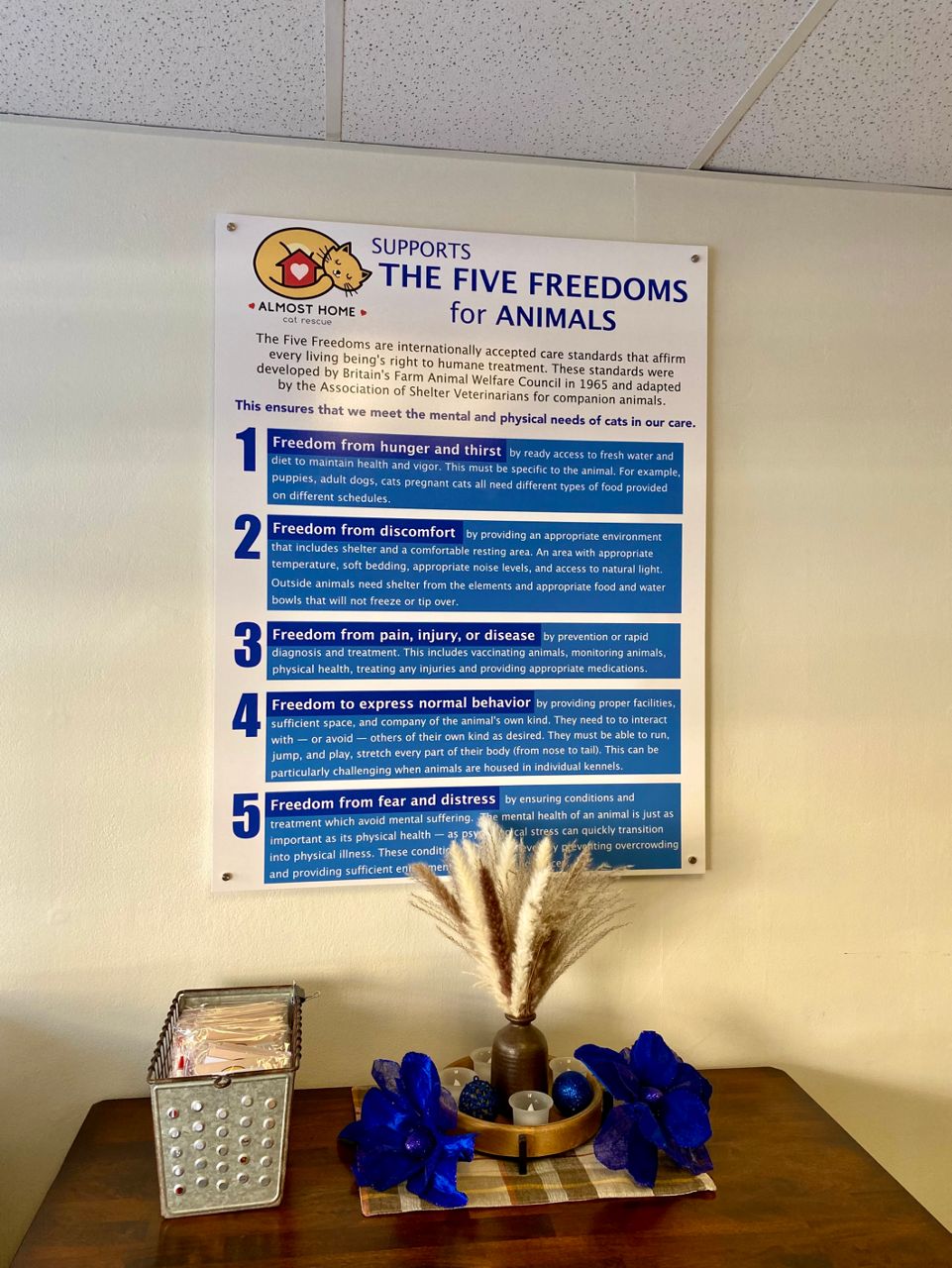
One of those involves allowing animals to do things that are natural to them. That’s why cats are free-roaming in Almost Home's space, just as in a home or outdoors.
From the moment cats are brought into the shelter, volunteers like Kleverova Zilliox, also stay with them overnight to get them adjusted to the space and the other cats — a process she calls “cat camping.”
“Everything that we need as sentient beings, kitties need too,” said Kleverova Zilliox.
Part of their work involves helping the unsocialized and those that have extensive medical issues. Kleverova Zilliox said many shelters end up euthanizing cats for these reasons because they don’t have the resources to address them. About 530,000 cats are euthanized each year in the U.S., according to the American Society for the Prevention of Cruelty to Animals.
In the last year, the Milwaukee rescue took in four cats from HAWS that would’ve face this fate.
“We will try everything until the doctors tell us that quality of life is no longer possible,” said Kleverova Zilliox of cats with medical conditions.
For them, that includes taking in cats that are positive for Feline Immunodeficiency Virus and lifting them up for adoption.
“We are trying to get rid of the stigma that those are death sentences and they really aren’t. Long ago the vets used to say, ‘oh, they’re not going to have quality of life,’” said Duwe.
“At other shelters, those would be kitties that either would stagnate, that wouldn’t either get promoted or the help that they need, or potentially euthanized,” added Kleverova Zilliox. “Those kitties might not even have ever had a chance.”
If there’s a cat that needs saving, they’ll save it, she said. They even have emergency foster families on deck who always have a space open for any cats with medical or behavioral issues.
“We don’t say no very easily," said Kleverova Zilliox.
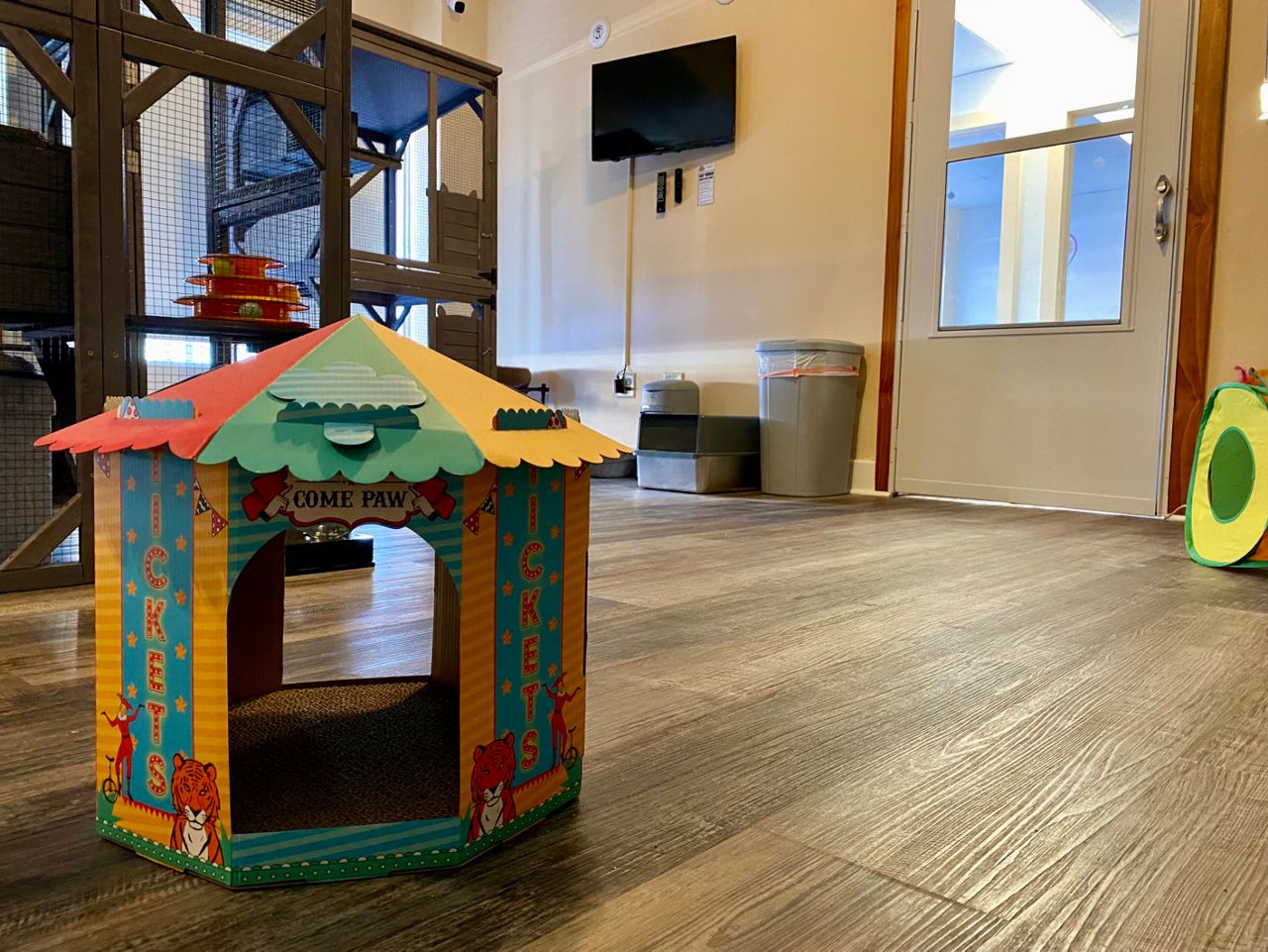
There’s a distinct way this heartfelt mission spreads across Almost Home’s vast network of foster families and volunteers.
As a “fear free shelter,” everyone in their organization goes through an online course that details how to handle animals, read their body language and more. It’s a step Kleverova Zilliox said you don’t see at every shelter.
They also take steps to help fosters figure out cats’ personalities to ensure they go to the right family.
Support beyond the adoption
Not only do they train volunteers, but Almost Home also opens their doors to adopters well beyond the actual adoption date.
“A lot of shelters, they just they do the adoption and then, you’re on your merry way,” said Kleverova Zilliox.
Online, the nonprofit offers several guides — such as cat-to-cat introductions, dog-to-cat introductions, enrichment activities that make cats happy and more — that help support adopters after they’ve gone home with their animal.
“We like to be a resource for the community,” said Kleverova Zilliox. “We also want to show people that what we’re doing here you can easily do in your home.”
“Our biggest thing is we want to help them (cats) stay in a home where they’re loved,” she added.

One of the other services Almost Home offers to cat owners is something known as safe keep.
“A lot of people, because of the economy and things, have been losing their homes, or they can’t find something that will take pets and they don’t want to give up their pets,” said Duwe. “We will take them in on a temporary basis and live in my home until they get back on their feet and then they’ll come and collect their kitties and get to keep them.”
Duwe explained that she often opens her home in these situations.
Nothing without volunteers, donations
But none of this can happen without donations.
As a nonprofit, Duwe said Almost Home relies heavily on donations and volunteers.
Adoption fees for a kitten are $175, but Duwe said they don’t make their money back on that. Often, costs for the shelter exceed far beyond the adoption fee so they can pay for cats’ medical care. Within the past year, they’ve also had to pay for some intense medical procedures for their cats.
A visit to the space is free (a waiver is still needed), but they often suggest a $5 donation. Duwe said many have given above that to support their mission, with some giving things like money and cat food before they opened their doors.
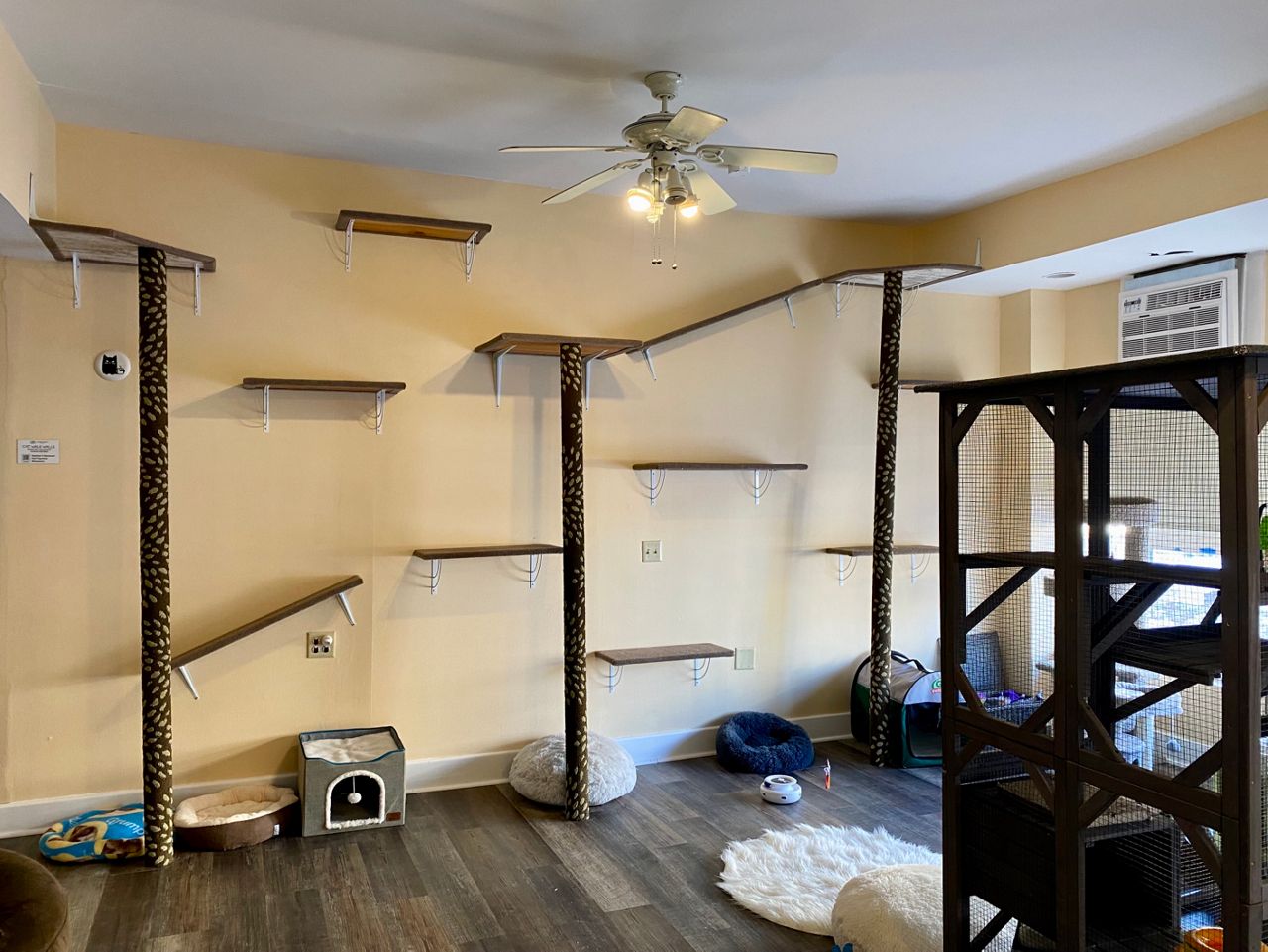
Kleverova Zilliox said a $10,000 Bounceback grant from Wisconsin Economic Development Coporation and the City of Milwaukee is what helped them jumpstart the space downtown, but that they always need more.
That’s especially true for volunteers too. Currently, Almost Home has about 35 volunteers who serve on a regular basis.
Both Duwe and Kleverova Zilliox emphasized that they always need more people to help, whether it’s someone to help with fundraising or to physically socialize with the cats in the space.
“Any way that a person would want to be involved, we’ll have something for them to do,” said Kleverova Zilliox.
“Even if they can only give us an hour or two hours a month, it’s something that takes a burden off of the people who are taking three or four jobs at a time,” added Duwe.
You can learn more about volunteering on Almost Home’s website. You can also learn about how you can support the shelter, here.
A spot of joy in the neighborhood
As both women look forward to the future of their business, they said they’re excited to have a space like this.
Not only has the space already sped up adoptions, but it’s had people stopping in their tracks as they walk by.
“When we had, I think eight kittens in that window — was the most kittens we had — you would see people just like stop in their tracks and just be like, ‘oh,’ and then they would come in and then we got a few adoptions from that,” said Kleverova Zilloix.
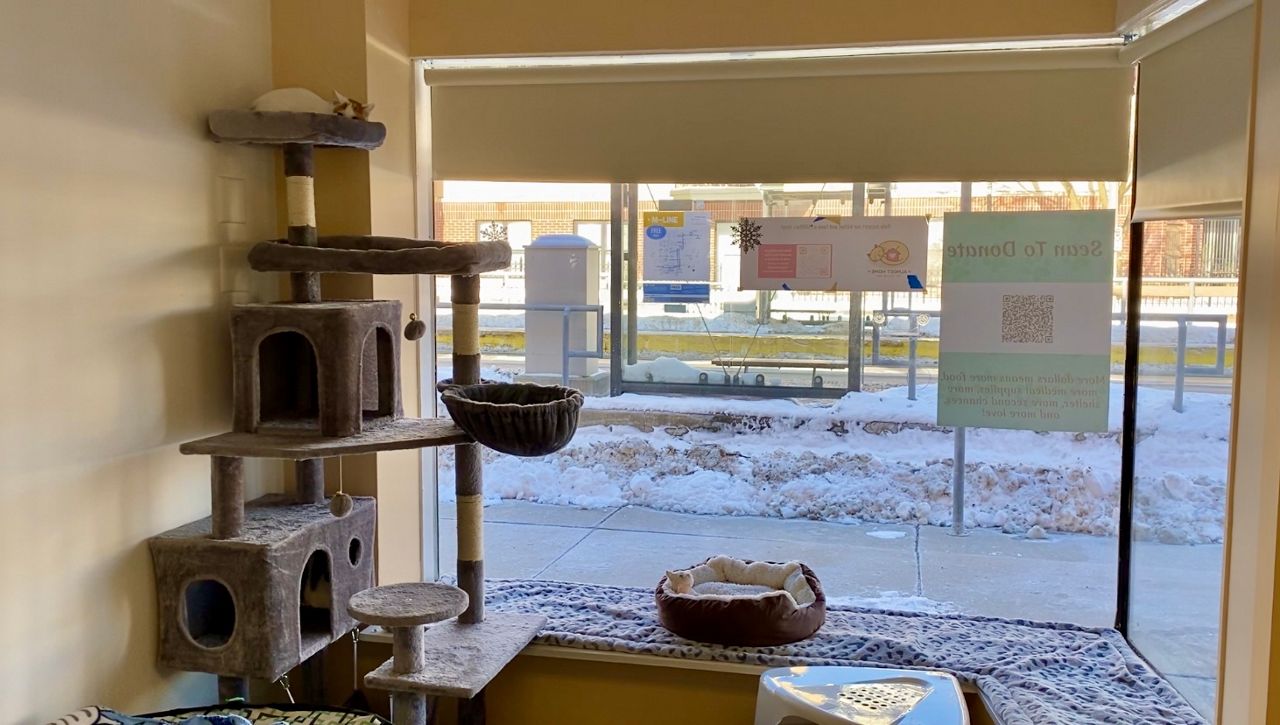
Their space is open Tuesdays and Thursdays from 6 to 8 p.m. and Saturdays and Sundays from 10 a.m. to 2 p.m. It's a limited timeframe, but enough to make a big difference.
“We really want to be a little gem, as this part of Ogden, and this part of Milwaukee, to really be joyful. There’s so much bad stuff out there in the world that watching people go by and see kittens and just smile,” said Kleverova Zilliox. “We just want to be a little spot of joy.”



